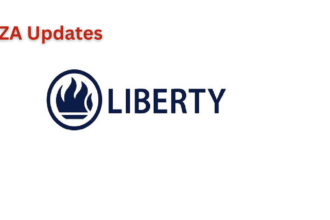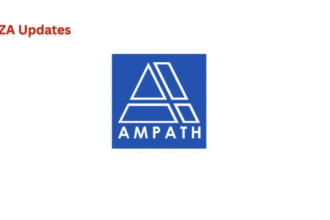SETA online courses have emerged as a reliable, flexible, and accessible way for South Africans to upskill or reskill from the comfort of their homes. These courses are ideal for individuals looking to gain recognised qualifications without attending physical classes.
This guide unpacks everything you need to know about SETA-accredited online courses, from eligibility to benefits, types of training available, and how to choose the right one for your career.
What Is SETA?
The Sector Education and Training Authority (SETA) is a government-established body in South Africa that focuses on developing skills in various economic sectors. SETAs are responsible for:
- Collaborating with employers and training institutions
- Creating structured learning pathways
- Ensuring quality and relevance in training programs
- Bridging the skills gap in key industries
Each sector, such as finance, healthcare, manufacturing, and agriculture, has its own dedicated SETA to promote focused development.
Why Choose a SETA-Accredited Course?
Choosing a SETA-accredited course ensures you are receiving training that meets national and industry standards. These qualifications are recognised by employers, increasing your chances of employment, promotion, or professional credibility.
| Benefit | Description |
|---|---|
| National Recognition | Courses are officially approved by the South African Qualifications Authority (SAQA) |
| Industry Relevance | Programs are designed in collaboration with key industry players |
| Skills-Based Certification | Focuses on practical competencies and real-world application |
| Enhanced Employment Chances | Recognised by HR departments and recruitment agencies |
SETA online courses are a smart investment in your future, whether you’re starting a new career or upgrading existing skills.
Types of SETA Online Courses
SETA online training covers a broad spectrum of sectors and skill levels. Below are the major categories:
1. Sector-Specific Courses
These courses are tailored to meet the needs of a specific industry:
- Mining SETA (MINSETA) – Safety compliance, machinery operations
- Health and Welfare SETA (HWSETA) – Patient care, community health
- Manufacturing SETA (MERSETA) – Engineering processes, maintenance
- Services SETA – Customer service, business administration
- Tourism and Hospitality SETA (CATHSSETA) – Event planning, food safety
2. Certification and Short Courses
Short-term programs that provide certifications in practical areas such as:
- First Aid and CPR
- Occupational Health and Safety
- Customer Relationship Management
- Data Capturing
- Bookkeeping and Payroll Administration
These can be added to your CV or LinkedIn profile and often require minimal time commitment.
Learner Eligibility and Entry Requirements
Most SETA online courses have open enrollment policies, meaning you don’t always need prior qualifications. However, specific programs may require:
- Basic literacy and numeracy
- Industry experience (for advanced courses)
- South African ID or permit
Registration Process:
- Choose an accredited training provider
- Complete the online registration form
- Submit supporting documents
- Pay the course fee or apply for a subsidised program
Advantages of SETA Online Learning
1. Flexibility and Convenience
- Study at your own pace
- No need for travel or accommodation
- Perfect for working professionals or students with busy schedules
2. Cost-Effective Education
- Lower fees compared to traditional institutions
- Save on commuting, printed materials, and campus-based services
- Many providers offer government-sponsored programs or payment plans
3. Practical Learning and Industry Recognition
SETA-certified courses are outcome-based, meaning you learn by doing. This ensures:
- Better knowledge retention
- Confidence in applying skills at work
- Higher chances of getting promoted or hired
How to Choose the Right SETA Online Course
Step 1: Identify Your Career Goals
Are you looking to change industries, earn a promotion, or learn a new skill? Start by defining what you want to achieve.
Step 2: Conduct a Skills Gap Analysis
Compare your current skills with those required in your desired job. Choose a course that closes this gap.
Step 3: Check Accreditation and Course Content
- Is the course SETA-accredited?
- Does it offer practical assignments?
- Is the content updated for current industry demands?
Step 4: Review Support and Delivery Methods
Courses may be:
- Self-paced
- Instructor-led
- Blended (mix of both)
Ensure there’s access to tutors, peer forums, or mentorship for better outcomes.
Tips for Succeeding in SETA Online Courses
Manage Your Time Well
- Set aside specific hours daily or weekly for studies
- Break modules into manageable goals
- Avoid last-minute cramming
Engage with the Material and Community
- Participate in forums
- Ask questions
- Use additional online tools like YouTube or academic articles
Use Your Certification Strategically
- Update your CV and LinkedIn profile
- Network with peers in your industry
- Use certificates to apply for better roles
SETA Online Courses FAQs
1. Are SETA courses free?
Some are fully funded by government grants, while others may have a fee. Check with the provider.
2. How long do online SETA courses take?
Anywhere from a few weeks (short courses) to several months (full certifications).
3. Do SETA courses count towards a formal qualification?
Yes, if the course is unit standard aligned, it can contribute to a full qualification under the NQF.
4. Can foreigners enrol in SETA courses?
Yes, provided they have the right study permits or are residing in South Africa legally.
5. Is there support for unemployed learners?
Yes, SETAs often offer bursaries or stipends to unemployed individuals.
Conclusion
SETA online courses are more than just a study option, they are a strategic tool for transforming your career. Whether you’re upskilling for a promotion, changing industries, or entering the workforce for the first time, choosing the right SETA-accredited online course can set you apart.










